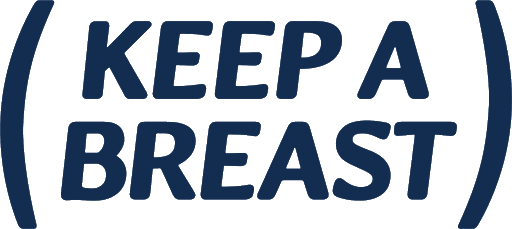Mental Health Action Day: Going from Awareness to Action
Almost 70 percent of Americans say that living through the COVID-19 pandemic has negatively affected their mental health.
With the emotional strain of lockdown measures, health concerns, financial woes, political instability, and in too many cases the tragic loss of loved ones, the past 14 months have fueled a secondary crisis — a collective decline in our mental health. Amid the COVID-19 pandemic, four in ten U.S. adults report symptoms of anxiety or depression. This rate is up from one in ten in 2019.
Even more Americans say they’ve struggled to manage the year’s stresses. There has been an uptick in substance abuse, sleeping problems, and undesired weight changes. According to the American Psychological Association (APA), these signals often reflect mental health challenges that may worsen without treatment.
Breast cancer survivors and people who are currently fighting breast cancer also have unique mental health needs. The adverse effects of breast cancer and its treatment may include depression, anxiety, feelings of hopelessness, and changes in self-esteem. A breast cancer diagnosis can also cause strain on personal relationships. But for people fighting breast cancer, taking action to protect and improve mental health is vital — according to a study cited by the APA, a decrease in depression symptoms was associated with longer survival in patients with metastatic breast cancer. In another study, breast cancer patients who participated in psychologist-led group therapy had a 45 percent lower risk of a recurrence of cancer.
But more than half of people with a mental health condition don’t receive help. That’s why this year, on May 20, organizations around the country are coming together for the first-ever Mental Health Action Day.
WHAT IS MENTAL HEALTH ACTION DAY?
Photo: Matthew Ball
More people than ever recognize the importance of caring for mental health. Yet stigma about mental conditions still persists. From worries about peer judgment to systemic societal and institutional biases, barriers to seeking treatment for mental health concerns keep people from getting care.
For example, a recent survey found that 66 percent of people say they’ve discussed mental health with a coworker. But less than half feel comfortable talking to their managers — and only 38 percent have received information about mental health coverage from their employer.
These patterns are bleaker for low-income Americans and communities of color. Social discrimination, job insecurity, and poverty are all linked to greater rates of mental illness. At the same time, historically marginalized communities also have disproportionately lower access to mental health resources.
Mental Health Action Day strives to overcome obstacles to seeking mental healthcare. It aims to normalize conversations about mental health, and then to turn awareness into action by:
Amplifying the dialogue among friends, family members, coworkers, and the general public
Providing tangible tools and resources for all communities
Motivating advocacy to expand access to mental healthcare
HOW TO PARTICIPATE IN MENTAL HEALTH ACTION DAY
Mental Health Action Day will feature activities, from organizations across the U.S., in support of efforts to improve our collective mental health.
Everyone is invited to contribute to this cause. On Tuesday, May 20, add to the momentum of Mental Health Action Day by:
CHECK IN WITH YOURSELF
Slow down and take stock of how you’ve been feeling — while recognizing that mental health changes go beyond shifting moods.
For example, the APA says that high stress levels can lead to trouble sleeping, headaches, appetite changes, difficulty concentrating, and more. If stressors are left unaddressed, these problems can evolve into longer-term mental health conditions.
Photo: Finn
Photo: Simon Rae
ADOPTING A MINDFULNESS PRACTICE
If you’ve been ignoring that meditation app for the past year, use the day to take your first step. A wide body of research shows that mindfulness activities improve our mental wellbeing.
While meditation is commonly touted as a mindfulness practice, there are many ways to integrate mindfulness into your everyday life, such as:
Joining a yoga or exercise class
Gardening or walking in nature
Drawing, coloring, cooking, and other creative activities
TELLING YOUR STORY
Whether you reach out to a friend, post on social media, or join a support program, sharing your narrative is a powerful mental health tool. Stories connect us over shared struggles while helping to normalize conversations about mental health.
This approach helps to process your own mental health challenges. But forging a common ground also encourages others to validate their feelings. This can motivate people who otherwise might not seek help to take action.
Photo: Omar Lopez
Photo: Leon
BECOMING AN ADVOCATE
Mental Health Action Day is also an opportunity to look outward. Societal changes like ensuring equitable access to resources take a million small steps, such as:
Sharing resources with family, friends, and coworkers
Joining a peer support program
Volunteering your time and skills to an organization dedicated to expanding mental healthcare access
FINDING A THERAPIST
The movement’s prevailing message is that no one should be alone in facing mental health challenges. If you’re having trouble — whether it’s pandemic-related stress or feelings of grief after a tragic loss — don’t be afraid to reach out for help. Your feelings are valid, and there’s no minimum “struggle requirement” to benefit from therapy.
Photo: Kelly Sikkema
DO YOUR PART FOR MENTAL HEALTH ACTION DAY BY TAKING ACTION FOR YOURSELF!
We have partnered with Carbon Health because their team of mental health experts can help you solve problems, overcome stress, and develop stronger ways to manage your mental health. And they offer virtual mental health appointments (currently available in California) so that you can access the support you need from anywhere.






